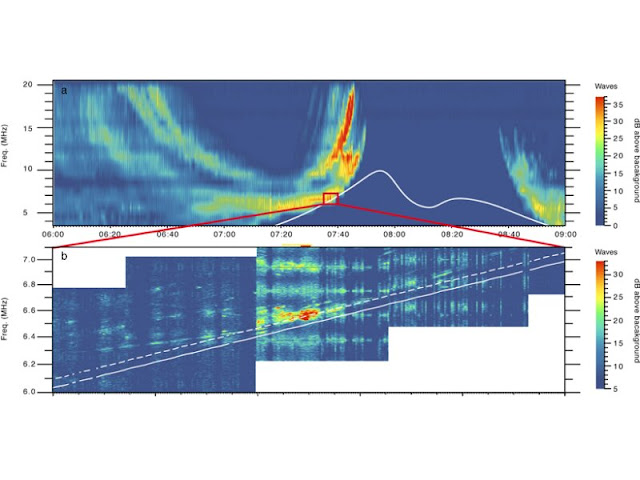years, the Juno mission has once again made headlines with a major finding.
However, this time it isn’t about Jupiter. The most recent developments concern
Ganymede, the gas giant’s biggest moon. According to the claim, Juno has picked
up an FM radio transmission from the moon. crossorigin="anonymous">
style="display:block"
data-ad-client="ca-pub-2375157903127664"
data-ad-slot="7974853704"
data-ad-format="auto"
data-full-width-responsive="true">

Could it be aliens trying to contact or something
similar might explain the origin of this signal? Unfortunately, NASA officials
believe it is of natural origin. So the chances of the signal being from an
actual alien beings are very low.
The signal was a “decametric radio emission,”
according to the official name, but we all know it by its more popular
nickname, Wi-Fi. The frequency range is the same as that used by our Earthly
communications.
Juno caught the FM radio signal while circling near
Jupiter’s polar regions, close to the magnetic field that connects Jupiter to
Ganymede. In terms of the actual reason, experts believe it was caused by
electrons oscillating at a slower pace than usual. This is referred to as
cyclotron maser instability.
Radio waves have long been known to exist on
Jupiter, but none have ever been caught from its moons. Despite the fact that
it is not an alien signal, the fact that it is the first of its kind from
Ganymede makes it all the more significant.
Ganymede once again demonstrates why it is one of
the Solar System’s most mysterious objects. Scientists have made numerous key
discoveries concerning our solar system’s largest moon in the last decade, putting
it high on the scientific list of exploration destinations.

Comments
Post a Comment